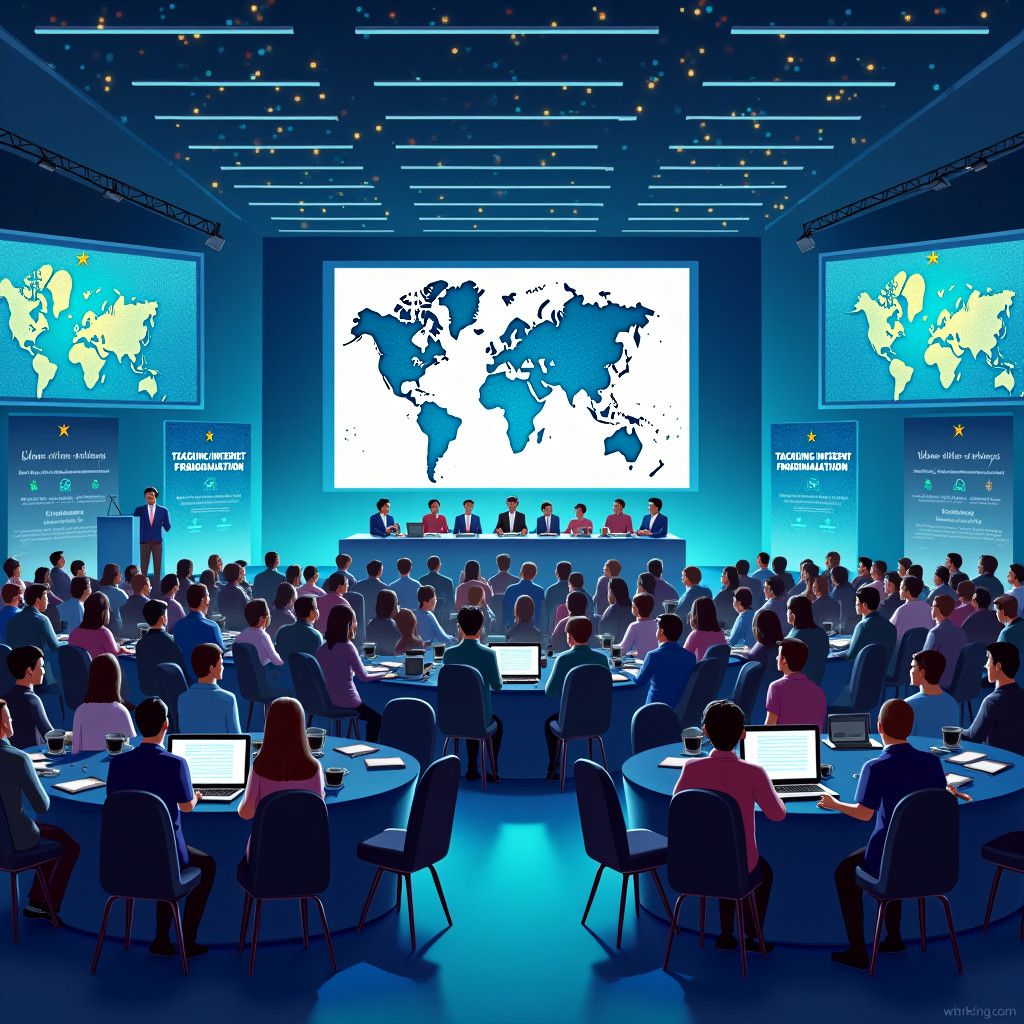As the world becomes increasingly interconnected, the issue of internet fragmentation has emerged as a significant concern. During the Internet Governance Forum (IGF) 2024, held in December, experts gathered to discuss the profound implications of this fragmentation and the strategies required to address it. The session highlighted the complex landscape of internet governance and the necessity for collaborative efforts to foster a seamless digital environment.
Internet fragmentation refers to the phenomenon where different parts of the internet operate separately from one another, often leading to inconsistent access and performance for users. This fragmentation arises from a multitude of factors, including national regulations, infrastructure discrepancies, and varied technological standards. As countries adopt divergent policies, the risk of creating isolated online ecosystems increases. For instance, China’s Great Firewall restricts access to foreign websites, creating a digital environment vastly different from that in Western nations. Such disparities pose challenges for businesses, especially those striving for a global presence.
The discussions at IGF 2024 illuminated the multiple facets of this issue. With representatives from various sectors, including government, industry, and civil society, the forum aimed to foster a comprehensive understanding of the real-world implications of internet fragmentation. One key takeaway was the need for a coordinated approach among stakeholders to formulate policies that support interoperability and inclusivity. As internet usage grows globally, neglecting these aspects could exacerbate the digital divide, effectively sidelining those without access to advanced technologies or information.
During the sessions, experts emphasized the importance of establishing baseline standards that could facilitate smoother internet connectivity across borders. For example, the implementation of the Global Digital Compact emphasizes the need for collaboration among nations to create an open and inclusive internet. By establishing shared principles, countries can work towards minimizing fragmentation while ensuring the internet remains a global resource rather than a fragmented patchwork.
One notable example discussed at IGF 2024 was the European Union’s Digital Single Market initiative. By harmonizing regulations and promoting cross-border services, the EU has taken strides to combat fragmentation within its member states. Such examples serve to inspire global adoption, showing that collective policy-making can yield tangible benefits. The success of the EU’s approach lies in its ability to align the interests of multiple stakeholders, driving essential reforms needed to enhance digital cooperation.
Additionally, issues surrounding internet governance were pivotal in the conversations. The recognition of the multi-stakeholder model, where governments, private sector entities, and civil society collaborate, is paramount for the future of an integrated internet. This model invites diverse perspectives, which can yield innovative solutions to complex problems like fragmentation. During the forum, participants underscored the need for greater engagement from underrepresented groups, ensuring that decisions reflect the needs of all internet users.
Moreover, the tangible impacts of internet fragmentation are often felt most acutely by businesses and entrepreneurs. Companies operating in fragmented markets face increased costs and uncertainties due to inconsistent digital regulations. For instance, firms that rely on cloud services may struggle with varying compliance requirements across different jurisdictions. Addressing fragmentation not only ensures a level playing field for businesses but also fosters innovation. When barriers to accessing information and services are reduced, opportunities for entrepreneurship expand, facilitating economic growth.
The environmental aspect of internet fragmentation is another pressing concern. As regional internet infrastructures develop independently, energy consumption can increase due to inefficiencies. Experts at IGF 2024 advocated for integrating sustainability into the conversation around digital cooperation. By emphasizing green technologies and sustainable practices, stakeholders can work towards a future where internet access comes without compromising the planet’s health.
As IGF 2024 concluded, participants left with a clearer understanding of the challenges posed by internet fragmentation. The event served as a reminder of the importance of collaborative efforts to establish a more inclusive digital future. Developing shared standards and regulations is vital to ensure that the internet remains a universal resource, uniting diverse populations rather than dividing them.
In summary, the discussions at IGF 2024 underscored the urgency of addressing internet fragmentation. Through mutual cooperation, stakeholders can set the course for a more equitable and cohesive digital landscape. As the global community confronts this challenge, the principles and strategies outlined during the forum provide a roadmap towards fostering a resilient and interconnected internet.












